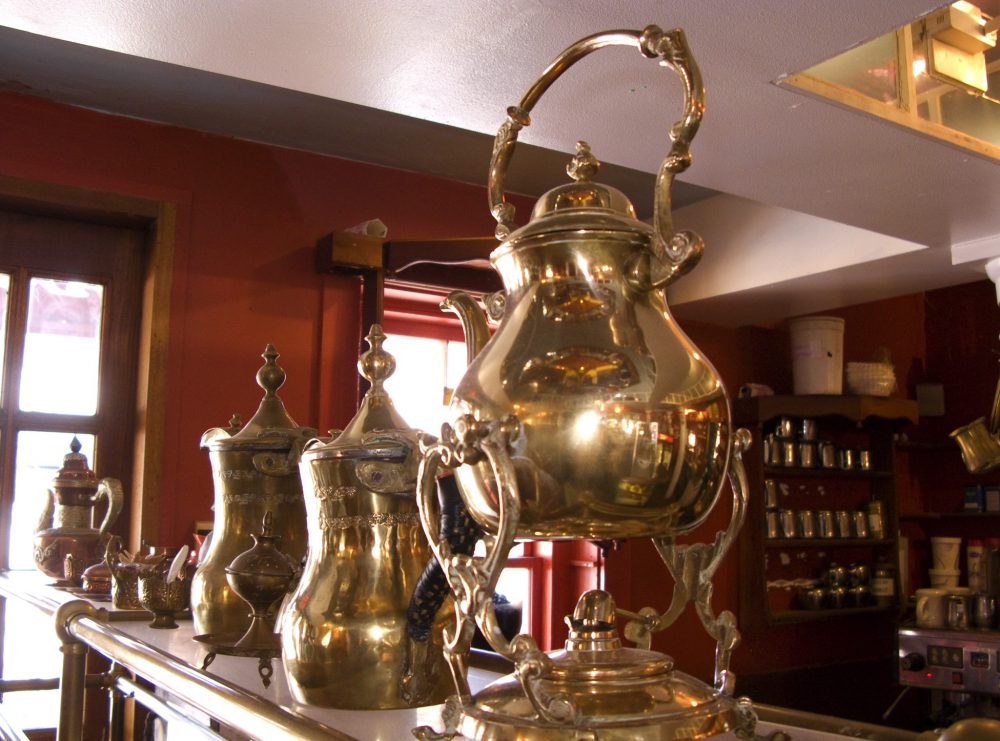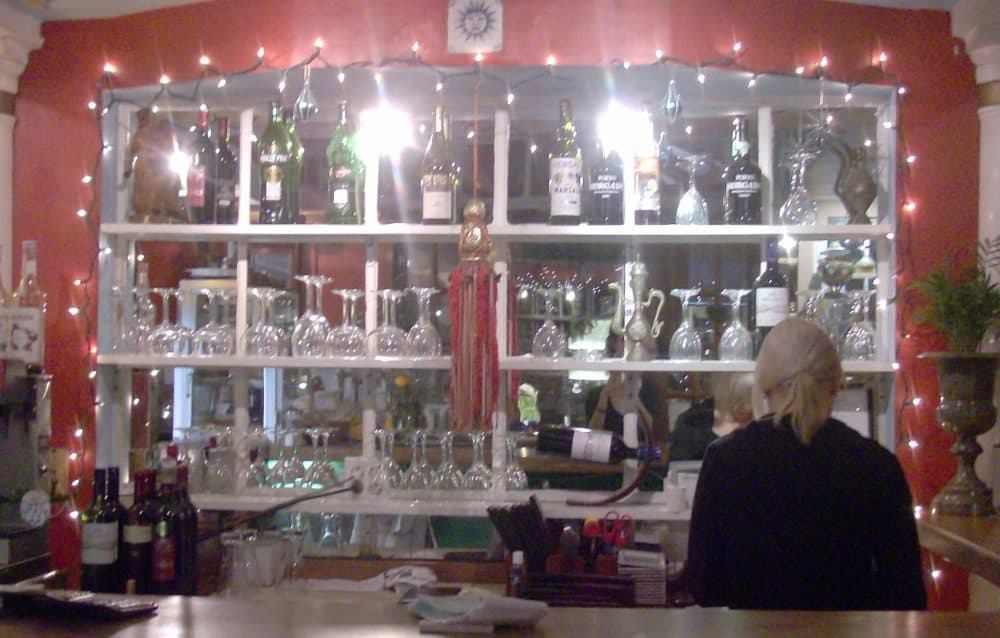Advertisement
Commentary
A Place Where Anything Seemed Possible: A Writer Looks Back On The Closing Of Cafe Algiers

A couple of months ago, my friend Emily and I treated ourselves to a night out in Harvard Square, in one of those trendy places where every menu item is described lovingly, the way Proust might have done, and presented to your table like a work of art.
Afterward, I suggested that we go to Cafe Algiers for nostalgia's sake. Although we didn't know each other in our 20s, back then Emily and I were among the aspiring artists who hung out in Cafe Algiers, scribbling our thoughts in journals while sopping up hummus with pita bread and drinking mysterious herbal teas, the likes of which our Lipton-serving mothers never saw.
I was delighted to see that nothing about Cafe Algiers had changed. The surly waitresses still took their time, knowing their customers probably wouldn't (or couldn't afford to) order much more than tea. No fewer than five different languages were being spoken. And there were the intriguing alcoves, tiles and mirrors I remembered, a setting that said, “You will be cool if you sit here.”
...a place that inspired ideas powerful enough to take flight.
In my 20s, I had never been cool. I was from a tiny town in central Massachusetts, the daughter of a Navy officer and a mother who favored recipes in the "I Hate to Cook Book." I had never eaten hummus or baklava, or even that toast made so cunningly from flatbread. Seeing people of color in my town was, at that point, such an oddity that my mother would point them out on the street.
In college, I had majored in biology; I intended to apply to medical school. You know: to do something helpful. Sensible.
Yet, sitting in Cafe Algiers after college graduation, I could suddenly imagine myself headed to exotic locales, maybe even Africa or Southeast Asia, and carrying all of my worldly goods in a ragged backpack. Those goods would include a journal, of course, and the novels of Paul Bowles. Maybe I'd report on international crises or even write fiction. Among the cognoscenti of Cafe Algiers, anything seemed possible.
Eventually, I did give up on medical school. Now I'm a novelist. And, yes, I have been to Africa and Southeast Asia, and many more places besides.
After half a century of doing business in Harvard Square, I had assumed Cafe Algiers was an institution as permanent as Harvard University. Alas, no: The cafe closed its doors on August 31. Chef Michael Scelfo, owner of two other dining hot spots in the square, will open his newest restaurant in its place.
Advertisement

As Emily and I sat in Cafe Algiers recently, we didn't know it would be our last time there. We joked about the waitresses and the tea. I'd forgotten what deep scowls the waitresses wore, as if they were put upon by our very presence and eager to be done with the sorry business of serving food, so they could return to creating poetic rants and emotive song lyrics. And I had definitely forgotten how many twigs you had to pull out of your teeth as you drank the unfiltered tea, as well as how sticky those copper-topped tables could get. It was like putting my elbows on flypaper.
But I loved being in Cafe Algiers for the same reasons. Yes, many of the twentysomethings wore earbuds and were tapping on laptops instead of writing in actual paper journals, but there was a fierce energy in that concentrated creativity. It was a joy to once again be surrounded by such passionate determination, and by people who will produce remarkable poems and novels, songs and paintings. That kind of creativity really can change the world, even when it seems like everyone in the world is lost.
And so I mourn the closing of Cafe Algiers, a place that made even this small-town girl feel like a part of something larger — a place that inspired ideas powerful enough to take flight.
